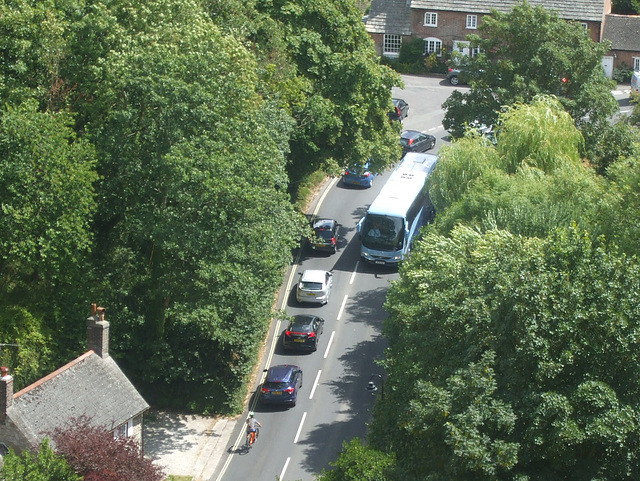DSCF3703 Yellow Buses 194 (SK07 DYB) in Bournemout…
DSCF3514 Yellow Buses 194 (SK07 DYB) in Bournemout…
DSCF3970 Ghielen Touringcarbedrijft (NL) 268 (84-B…
DSCF3712 Yellow Buses drivers in Bournemouth - 27…
DSCF3704 More Bus 231 (HF18 CGV) and 245 (HF18 CHX…
DSCF3622 Yellow Buses vehicles in Bournemouth - 27…
DSCF4121 Able Coaches? (David Andrews, North Mymms…
DSCF4120 Able Coaches? (David Andrews, North Mymms…
DSCF3827 Anderson Travel WJ66 KCU in Corfe Castle…
DSCF3826 Anderson Travel WJ66 KCU in Corfe Castle…
DSCF4464 Richard Taylor Travel YN08 UAK at Barton…
DSCF4467 Richard Taylor Travel YN08 OCP at Barto…
DSCF4458 Richard Taylor Travel YN08 OCP and YN08…
DSCF4456 Richard Taylor Travel YN08 OCP and YN08…
DSCF4481 Theobold’s Coaches MT60 WKA on the A11 at…
DSCF4480 Theobold’s Coaches MT60 WKA on the A11 at…
DSCF4454 Mulleys Motorways YN54 NXK at Red Lodge -…
DSCF4453 Mulleys Motorways YN54 NXK at Red Lodge -…
DSCF4452 Mulleys Motorways YN54 NXK at Red Lodge -…
DSCF4455 Freestone’s Coaches (Megabus contractor)…
DSCF4479 Ambassador Travel 256 (BV17 CUA) at Fivew…
DSCF4457 Freestone’s Coaches (Megabus contractor)…
DSCF4173 Stagecoach South 26161 (SN67 WWF) in Port…
DSCF3809 Go South Coast (Excelsior) coach at Corfe…
DSCF3781 Go South Coast (More Bus) 1705 (HJ16 HTA)…
DSCF3843 Go South Coast (More Bus) 1708 (HF66 DSO)…
DSCF4180 First 63051 (SK63 KJF) in Portsmouth - 2…
DSCF4280 Stagecoach South 26162 (SN67 WWG) in Port…
DSCF4184 Pewsey Vale Coaches ESK 931 (YJ07 DVT) in…
DSCF4183 Pewsey Vale Coaches ESK 931 (YJ07 DVT) an…
DSCF4223 East Yorkshire Motor Services 80 (YY63 OE…
DSCF4218 Stagecoach South 15990 (YN64 XSU) in Port…
DSCF4221 Stagecoach South 15990 (YN64 XSU) in Por…
DSCF3822 Go South Coast 1412 (HF09 FVT) in Corfe C…
DSCF3824 Go South Coast 1412 (HF09 FVT) in Corfe C…
DSCF3883 Yellow Buses 432 (HJ02 HFC) in Bournemout…
DSCF3735 Yellow Buses 433 (T204 XBV) at Alum Chine…
DSCF3671 Yellow Buses 433 (T204 XBV) in Bournemout…
DSCF3717 Yellow Buses 436 (T209 XBV) in Bournemout…
DSCF3918 Yellow Buses 434 (T207 XBV) in Bournemou…
DSCF3613 Discover Dorset T505 SSG in Bournemouth -…
DSCF3685 Discover Dorset T505 SSG in Bournemouth -…
HFF: Yellow Buses 202 (SN17 MTV) in Bournemouth -…
DSCF3657 Yellow Buses 203 (SN17 MTX) in Bournemout…
DSCF3876 More Bus 1117 (HW58 ATU) and 1609 (HF65 A…
Location
Lat, Lng:
You can copy the above to your favourite mapping app.
Address: unknown
You can copy the above to your favourite mapping app.
Address: unknown
See also...
Authorizations, license
-
Visible by: Everyone -
All rights reserved
-
196 visits
DSCF3806 Go South Coast (Excelsior) coach at Corfe Castle - 28 Jul 2018


Saturday 28 July 2018 (1347) – A view from the ramparts of the castle at Corfe Castle, Dorset of an Excelsior coach. Excelsior is a Go South Coast subsidiary. Looks like a Volvo 9700 body. A fleet list I have seen shows that two are operated numbered 5 (HF18 CKJ) and 6 (HF18 CKK) on B11R chassis which were new in April 2018.
The castle keep was built in the early 12th century for King Henry I, William the Conqueror’s son. Standing 21m tall and on top of a 55m high hill the tower of Purbeck limestone can be seen from miles around.
The castle keep was built in the early 12th century for King Henry I, William the Conqueror’s son. Standing 21m tall and on top of a 55m high hill the tower of Purbeck limestone can be seen from miles around.
- Keyboard shortcuts:
Jump to top
RSS feed- Latest comments - Subscribe to the comment feeds of this photo
- ipernity © 2007-2025
- Help & Contact
|
Club news
|
About ipernity
|
History |
ipernity Club & Prices |
Guide of good conduct
Donate | Group guidelines | Privacy policy | Terms of use | Statutes | In memoria -
Facebook
X

Broadly speaking there are two formats of buses and coaches. These are ‘integrals’ and ‘Body on Chassis’.
Once upon a time the British market favoured separate chassis builders with separate body builders. An operator (and its General Manager) would have its preferred choice of each. This could sometimes also apply to the choice of engine manufacturer.
Companies like AEC, Guy, Leyland etc would build the chassis and companies like East Lancs, Northern Counties, Roe, Metro-Cammell Weymann (MCW) etc would build the bodywork.
In your locality of Queensbury the buses of municipalities Bradford and Halifax together with those of Hebble Motor Services were once seen. In the 1960s Bradford mainly chose MCW bodied AECs but when the rear engine models became available they bought both the Daimler Fleetline and Leyland Atlantean with bodywork by either MCW or Alexander. Halifax had a number of different mixes. Hebble liked AEC chassis which had bodywork by Northern Counties, MCW and Weymann.
As the industry evolved with mergers, acquisitions and changing trends there are fewer options today. The giants like Volvo and Scania offer integral vehicles – that is to say they build a body shell into which the mechanical running components are integrated. Thus just one rather than two suppliers.
The main UK builders today are Wrightbus in Northern Ireland and Alexander Dennis in England/Scotland that still build separate bodywork on traditional chassis made by Volvo and Scania whilst at the same time also building their own integral models. Alexander Dennis had its origins as Walter Alexander Coachbuilders of Falkirk and Dennis Commercial Vehicles of Guildford.
Coaches generally follow the same lines. British built coaches have generally followed the body on chassis format but the integral style models, which have been popular in Europe for far longer, have now become more widely accepted as a result of globalised markets.
Sign-in to write a comment.